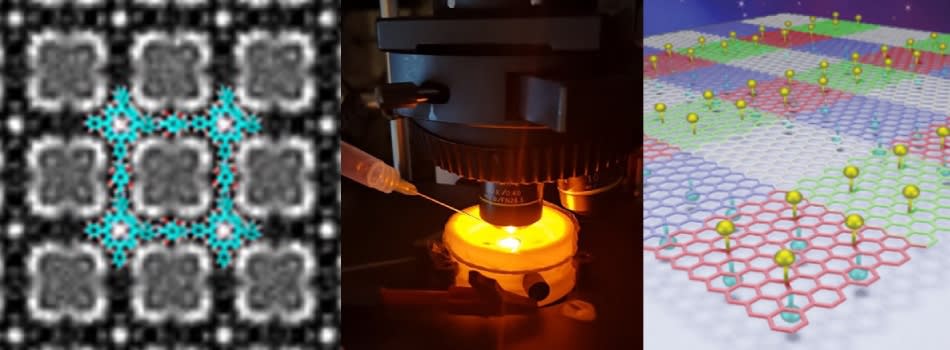The Research Training Group on Planar Carbon Lattices (RTG2861-PCL) offers 14 positions as Doctoral Researcher, funded with a competitive salary.
Are you looking for a PhD in chemistry, physics and materials science? Are you interested in carbon materials? Do you want to work in an exciting and inspiring research environment with leading groups of Germany’s top universities in materials science, Technische Universität Dresden (TUD) and Friedrich-Alexander Universität Erlangen-Nürnberg (FAU)?
Then apply to our new research training group RTG2861-PCL, funded by Deutsche Forschungsgemeinschaft. Our goal is to achieve atomic-precision synthesis and exploration of new planar carbon lattices (PCLs) for next-generation quantum materials, functional precision membranes, optoelectronic and electrochemical devices, by employing advanced experimental and theoretical methods in an interdisciplinary approach bridging synthetic chemistry, condensed-matter physics, and materials science. Our dual-site collaboration will establish the standard in research-based education in the field of PCL by combining our expertise in synthesis, function exploration, and theoretical description, and by exploiting the complementarity in laboratory equipment available at our institutions.
We offer
- Cutting-edge research and training in the field of advanced nanomaterials with focus on PCLs beyond the state of the art;
- A dedicated supervision concept with a dual mentoring strategy;
- A modern, interdisciplinary and international working environment in two of Germany’s most vibrant cities;
- Dual-site research and training facilitated by a virtual research environment where digital classes are combined with online tools to share information and research data;
- A comprehensive qualification program incorporating digital/hybrid lectures, weekly seminars, lab rotations and hands-on training;
- Annual summer/winter schools and complementary skills workshops.
Recruitment and working conditions
The project starts on April 1st, 2023, with 7 positions located at Dresden (TUD) and 7 positions at Erlangen (FAU). Each doctoral researcher will be recruited under an employment contract and will work on an individual research project. The employment contract comprises 75 % of the full-time weekly hours, and is initially limited for 36 months.
Requirements
- Very good university degree (M.Sc. or equivalent) in chemistry, physics, or materials sciences; Specialization in synthetic chemistry, physical chemistry, theoretical chemistry/physics, condensed-matter physics or nanosciences;
- Excellent results on individual performance criteria (manuscript/publication resulting from Master thesis, awards);
- Strong motivation to independently conduct research and to work in interdisciplinary collaborations;
- Excellent written and verbal communication skills in the English language;
- Letter of recommendation from the supervisor of the master thesis (and, if available, a link to your Master’s or diploma thesis);
- One-page motivation letter specifying your reasons for joining the RTG2861-PCL team, which two of the fourteen topics you are most interested in and why, and two preferred supervisors. Please visit our website to inform yourself about all required information.
How to Apply
Please submit your application as a single pdf-document including your CV, Master/diploma certificate and transcript of grades, motivation letter and letter of recommendation (as described above) to rtg2861-pcl@tu-dresden.de. The closing date for applications is February 3rd, 2023. The recruitment process will continue until the positions are filled and applications after the deadline may be also considered.

 Continue with Facebook
Continue with Facebook



